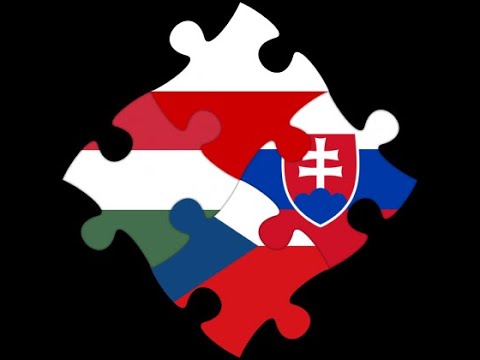Research & Studies

The book Projekt Mitteleuropa, written by Emil Brix and Erhard Busek, was published in 1986. This work had been brought forth by the then changing political circumstances, the so-called “meltdown.” The two Austrian authors discussed the situation of Central Europe with considerable—and well-founded—optimism. Gorbachev’s policies, the end of the Cold War, the promise of transformation seemed to open the road to normal existence for Central Europe too. Within a few years transition did occur, and the processes of democratization had become irreversible by 1990. Afterwards, the states of this region had been gradually incorporated into the “Euro-Atlantic structures,” becoming members of the Council of Europe, NATO and eventually the European Union over the next fifteen years. We could say that Central Europe’s ship had come home by 2005.
Did it really come home?
Thirty years later the two authors, a retired diplomat, historian, director of the Diplomatische Akademie Wien/Vienna School of International Studies Emil Brix and former Vice-Chancellor of Austria, currently Chairman of the Institute for the Danube Region and Central Europe, Erhard Busek, found that they should review all questions which are now on the agenda of political dialogue concerning Central Europe. Their recent book was published in 2018 first in German under the title Mitteleuropa revisited: Warum Europas Zukunft in Mitteleuropa entschieden wird (Rethinking Central Europe: Why the Future of Europe Will Be Decided in Central Europe), and in 2019 it was translated into Hungarian under the auspices of the Institute of Advanced Studies Kőszeg (iASK).
In a prologue, ten chapters and an epilogue the authors provide an overview of the issues they deem to be an important, interesting and inviting debate—from the end of the Cold War through the “bumpy road” of integration to the question of borders, from the heavy shadow of large neighbours through nationalisms to the role of religions and migration. They do this as committed Central Europeans, from an Austrian perspective and on a liberal ideological basis.
Their book—especially its subtitle—urges Hungarian readers to ponder upon the questions raised. While we can find therein numerous strands of thought, conclusions and appraisals which draw our appreciation and agreement, there are also quite a few ideas that we find debatable. One of the important merits of the volume is that it provides incentives for dialogue and discussion.
Our book has been written in response to this invitation for debate, as a kind of reflection on the work of the two Austrian authors. We did this as Central Europeans, from a Hungarian perspective, on a national democratic ideological basis. It is well known that all of us depict the world on the basis of our personal experiences—we find it hard to “step out” of our skin and stand nowhere, yet we strove to approach the ideas that do not meet our agreement or, contradicting our own experience and knowledge, provoke our disparate thoughts or beliefs “objectively,” with tolerance and empathy as much as possible. The organization of our book does not reflect the structure of the two Austrian authors’ work. When analyzing Central Europe, we placed emphasis on different points. Our views differ on the issues of nation and national minority, migration as well as the interpretation of democracy and so-called populism. However, there seem to be only slight differences of opinion about several other questions. Indeed, the intellectual, political, economic and security relations between Western Europe and Central Europe, the question of genuine integration will be essential in Europe of years to come. The spectre of Europe’s—re-emergent—partition is not just a blurred vision but the haunting ghost of an eerie future scenario. The fact that the United Kingdom leaves the European Union carries a dangerous message. In contrast with our so far optimistic image of Europe that the Union is able to strengthen continuously despite its many difficulties and problems, this event signals that it is possible to leave, to weaken the EU and construct a new political and economic counterpoint within Western Europe to the current Union. To date, the strategic and geopolitical implications of Brexit remain unforeseeable.
The subtitle of the book by Brix and Busek, “Why the Future of Europe Will Be Decided in Central Europe,” warns us to take a cautious approach. Is it true that the fate of Europe depends on this region? What does “will be decided” here mean? It is of utmost importance whether we, Central Europeans can decide or, as so many times in the course of history, efforts will centre somewhere in Western Europe to decide—again, on us but without us.
Or, to formulate this question in a different way: should Central Europe abandon essential components of its identity in order to conform to Western Europe, so that the fate of Europe could be turned in a “good direction,” or is it possible that deeper integration of the two macro-regions will emerge, where the two, Western and Central parts of equal rank unite to create a genuinely and deeply integrated Europe?
(The Authors – Iván Bába, Iván Gyurcsík, Csaba Kiss Gy.)